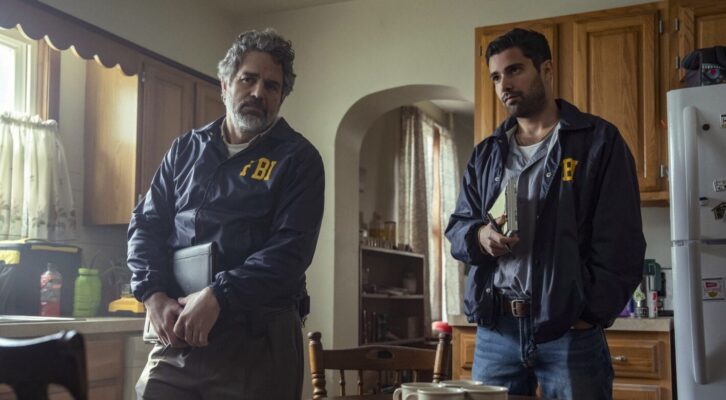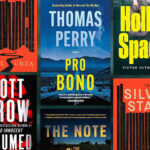
The Best Overlooked Books of 2015
According the National Book Critics Circle (Who Should Know)
We asked our friends at the NBCC (the National Book Critics Circle) to come up with some of the books they loved that maybe didn’t get as much attention as they deserved. With the help of NBCC board member Michele Filgate, here are their answers.

Signs Preceding the End of the World, Yuri Herrera (And Other Stories)
Yuri Herrera’s novel Signs Preceding the End of the World tracks one woman’s effort to cross the border from Mexico to the United States to find her brother, and it clocks in at about 100 pages. Yet few 2015 novels feel so epic. That’s not just because of the heartbreak that infuses Makina’s story, or its touches of underworld mythology, though there’s that. Its rich, dark sentences are what stick with you—Herrera’s prose (via Lisa Dillman’s translation) captures the novel’s themes of freedom and loss with a poeticism that feels at once surprising and centuries old.
–Mark Athitakis

The Star Side of Bird Hill, Naomi Jackson (Penguin Press)
A nuanced and beautifully crafted coming-of-age story set in Brooklyn and Barbados, about the summer Dionne, who is “sixteen going on a bitter, if beautiful, forty-five” and her tomboy sister Phaedra, ten, spend on clannish Bird Hill with their grandmother Hyacinth, a midwife and Obeah healer. Hyacinth teaches Phaedra about herbs and dreams, emphasizing that “life was not just easier but sweeter with family by her side.”
–Jane Ciabattari

The Dead Ladies Project, Jessa Crispin (University of Chicago Press)
I loved Jessa Crispin’s first book, The Dead Ladies Project, a hybrid memoir and cultural critique with her inimitable voice. (The galley reached me too late to include in my BBC.com Between the Lines column.) She is the founder of Bookslut and Spolia, a voracious and savvy and empathetic traveler and restless reader who lives within an infinite imagination. I can’t wait for more.
–Jane Ciabattari

The Automobile Club of Egypt, Alaa Al Aswany (trans. Russell Harris; Knopf)
The Automobile Club of Egypt was among my favorite books of the year, and surely deserving of more attention. Set in British-occupied, post-World War II Cairo, this novel offers exquisite detail, a large cast of colorful characters, and sharp insights into colonialism, class tensions, familial strife, political fanaticism, and more. It’s also very funny.
–Carmela Ciuraru

Leaving Orbit: Notes from the Last Days of American Spaceflight, Margaret Lazarus Dean (Graywolf)
I was really intrigued by the premise of Margaret Lazarus Dean’s Leaving Orbit: Notes from the Last Days of American Spaceflight. A blend of personal history, reporting, and a quiet reflection on the decline of the NASA space program and the curtailing, in a way, of American expansionist dreams.
–Joanna Scutts

The Story of My Teeth, Valeria Luiselli (trans. Christina MacSweeney; Coffee House Press)
I have seen the future of 21st-century Mexican writing: The Story of My Teeth—Luiselli’s playful, experimental and thoroughly entertaining story of Gustavo Sánchez Sánchez—is both comic and literary in the best sense. Above all, it lets the reader discover how exciting and original new writing can be. Bravo!
–Gregg Barrios

The Light of the World, Elizabeth Alexander (Grand Central Publishing)
Not sure this qualifies as “overlooked,” but I am an enthusiast for Elizabeth Alexander’s luminous and wise memoir, The Light of the World. Despite that dreadful title, Alexander manages to do something rare in literature: craft a believable, breathing portrait of a happy marriage over 15 years. Because she is a poet, she takes exquisite care with language, letting us know her life with Ficre Ghebreyesus, an artist and cook who grew up in Eritrea. Food is everywhere, including a recipe for Shrimp Barka in Chapter 2, and one for Spicy Red Lentil & Tomato Curry toward the end. I am tempted to give this slim work as a wedding gift, but the untimely death of Alexander’s husband makes such a gesture seem too macabre. Still, the book is that good.
–Karen Long

The Making of Zombie Wars, Aleksandar Hemon (Farrar, Straus and Giroux)
The Making of Zombie Wars is set in Chicago in the tub-thumping, war-mad spring of 2003 and stars Josh, a half-assed ESL teacher in his thirties who aspires to fame as a screenwriter. Excerpts from his screenplay for a zombie film serve as a fun-house reflection of both Josh’s muddled efforts at romance and the existential panic inside his own head. The result is an excellently entertaining social satire, knock-about-caper, and ingenious version of a slacker novel.
–Katherine A. Powers

The Small Backs of Children, Lidia Yuknavitch (Harper)
If I had it my way, this brilliant novel would be required reading for anyone who cares about the fierce necessity for art, for prose that pries the world open and jolts you out of the banalities of everyday existence. And as I said in an interview with Yuknavitch last July, she “writes about art, violence, sex, ferocity, willpower and womanhood with explosive force, in a language that evokes modern mythology.”
–Michele Filgate



















